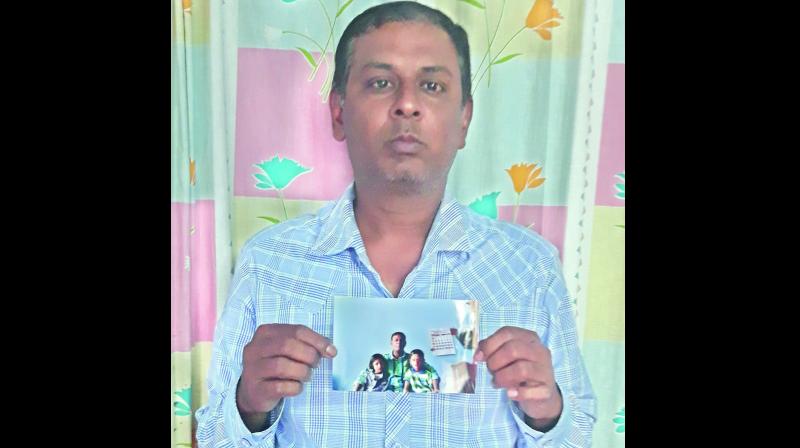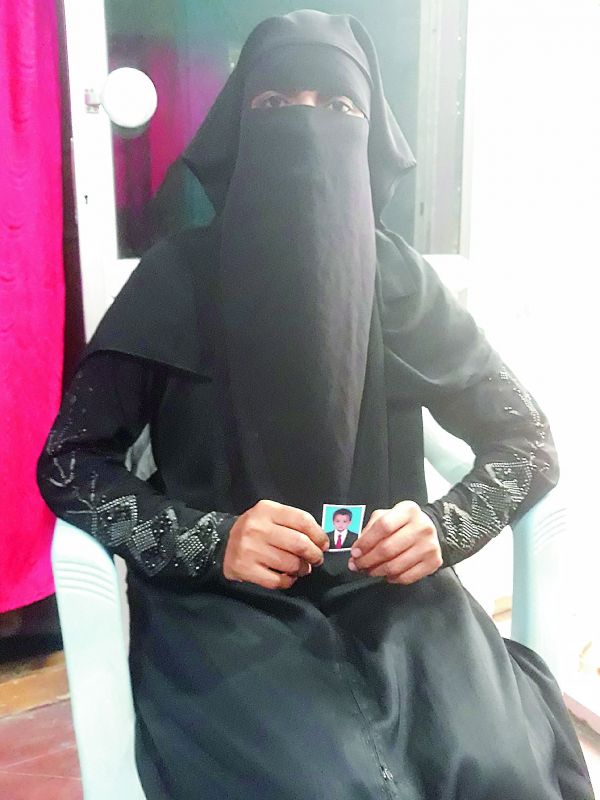Karimnagar Qazi under fire for aiding divorces
Women promised the moon, let down by marriage laws.

HYDERABAD: Fifteen days after she delivered her first baby, Shaheen was slapped with a divorce notice by her mother-in-law with the help of head Qazi of Karimnagar, while her husband with whom the marriage sustained for a year remained inaccessible in Saudi Arabia. Even before her stitches could heal and days before the naming ceremony of her son, Shaheen, a law student now, faced a debacle in her marriage. This was in 2004. She alleged that the head Qazi of Karimnagar, appointed by the Government and her in-laws who temporarily held the custody of the son, changed his name from Imran to Afran due to which she was running from pillar to post to get a valid identity, including an Aadhaar card.
She has filed a case against the Qazi Munqabath Sha Kha at Karimnagar police station and the case is under hearing.
Shaheen’s case is one of the cases filed by Muslim women who have alleged misconduct by qazis who commissioned divorce delivered by the husbands over the phone, WhatsApp messages, and even in their absence. While the Triple Talaq Bill has been postponed to the next Parliament session, here we exhume cases of talaq that have ruined lives of Muslim women. Shaheen, a resident of Priyadharshini Colony in Karimnagar (Rural), lamented, “I wanted to pursue law, but parents forced me into marriage. I got pregnant three months after I moved to Saudi when disputes broke out between my mother-in-law and me. I returned to India for my delivery. Neither my husband nor his parents were by my side when I delivered.”
“After 15 days and still not out of my delivery pains, my mother-in-law in absence of my husband made the head Qazi issue a divorce certificate. He informed this to me over the phone. It shattered me. For two years I tried to contact my husband in Saudi, who remained untraceable until 2016 when he confessed that it was his mother who forced him to divorce, but did not reconcile. I was denied maintenance during ‘Iddat’. They even changed my son’s name, and made a new birth certificate. When I tried to get an Aadhaar card, it was rejected thrice. He holds no valid identity due to discrepancies in documents,” Ms Shaheen added.
 Ms Shaheen holds a picture of her son. She was slapped with a divorce, 15 days post the delivery of her son and is fighting the case she filed against the Karimnagar head Qazi and her in-laws. (Photo: DC)
Ms Shaheen holds a picture of her son. She was slapped with a divorce, 15 days post the delivery of her son and is fighting the case she filed against the Karimnagar head Qazi and her in-laws. (Photo: DC)
Shaheen however pursued law after divorce and is in her final year, she is fighting her case in the Karimnagar family court and her maintenance of Rs 2 lakh is still uncleared. Shaheen takes tuitions to bear her son’s education cost and lives with her widowed mother and brother. Another Ms Farzana Sultana of Karimnagar who was married off at 18, said, “After marriage my husband Shariff promised to take me to Saudi. However three months later I received a call from the Qazi (Karimnagar) who got us married saying, “Shariff pronounced talaq to me over a phone call. My family did not have the financial strength to question the Qazi if indeed Shariff had agreed for the divorce. My in-laws are financially strong. With no fault of mine, I am a young divorcee. For the first three months I received an iddat of '500 and then that also stopped.”
Late Nazima Sultana, a young graduate from Karimnagar killed herself in 2017 as she was given Talaq 8 days after she married Mr Syed Mustafa, who re-married and now lives in Dubai. The aggrieved mother of Sayeeda said, “The boy's parents approached us even before Nazima completed her graduation. My husband invested his retirement money to get his third daughter married. We were not informed about the boy's relationship with another girl. The mother-in-law forced the marriage thinking that her son will get over the girl she disliked. But within 8 days the boy slapped a divorce notice. Unable to bear the embarrassment, Nazima committed suicide.”
The Muslim Women (Protection of Rights on Divorce) Act, 1986 Section 3 (1) (a) of the Act is not restricted only for the period of iddat. But a divorced Muslim woman is entitled to a reasonable and fair provision for her future being made by her former husband and also is entitled to maintenance being paid to her for the iddat period. But until the women fight in the court, maintenance does not come to her door. Also during iddat, the maintenance to women is sometimes as low as Rs 500 and most of the times zero.
Ms Ishrath Sultan, resident Christian Colony-Karimnagar, an activist who refused to ‘sign’ the signature campaign carried out by a mosque in Karimnagar to abolish the Triple Talaq Bill, expressed, “The Muslim personal law concerning divorce is highly abused. According to the Quran, in case the husband wants to separate, he must seek Talaq three times in a time frame of three months, but due to rampant corrupt nexus between the boys and the Qazi, Talaq is being accepted through calls, WhatsApp, Skype and even in absence of the husband who disappears after pronouncing talaq.
Bad upbringing, illiterate parents, no respect for the Muslim Personal law is ruining Muslim women with majority turning young divorcees. Ms Sultana alleged that the Qazi in Karimnagar, appointed by the Government in 2002 and drawing a monthly salary of '6,000, and whose job was to perform weddings was however sold out to financially strong parties who approach them Talaq or Khula and pass judgment in favour of the men, often including the custody of the children.
When this newspaper contacted Qazi Munqabath Sha Kha against whom three FIRs have been booked including serious charges like 124 (A), 153-A, 153-B, 166, 200, 295-A (sedition, provocation to cause riots) of Indian Penal code by complainant M.A. Hafeez who alleged that the Qazi unlawfully wrote the custody of his children in favour of his divorced wife Raheema Begum, the Qazi refuted all charges and said, “The charges are wrongly implicated on me, I perform weddings. However divorce is done after the panchayat approves. Custody of the children is written only when I am pursued by the parents.”

